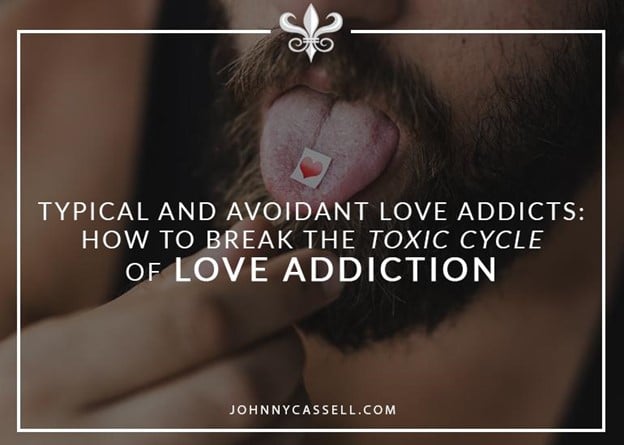
When we consider the relationships in our lives, are we thinking about the people we love? Instead, it might be worth taking a second to think about our relationship to love itself.
Some people see love as a daunting, impossible gauntlet, filled with unfulfillable obligations and terrifying expectations. So even if they end up in a relationship, they never put all of themselves into it for fear of ‘failing’ - even though love is, unconsciously, all they desire.
Others see love as a drug, a tool for filling a hole in their soul that only love can fill.
A loving relationship should be a healthy, balanced pact between two people to hang out, make each other happier, and build together. Nothing more. But it’s very, very complicated, and people’s histories, traumas, and personalities all factor into the way they perceive and engage with love.
If you see elements of yourself in the typical qualities of love addiction, it might be time to change up your approach.
What is love addiction?
According to psychologist Jim Hall, there are nine types of love addict. However, I’m going to focus on two types that create the least healthy dynamic when they form a relationship: Avoidant love addicts and typical love addicts.
However, addiction is a complicated process involving the reward centres of the brain. Until recently, the focus has been on substance addictions - drugs, alcohol, and tobacco. However, behavioral addictions like those to video games and gambling are slowly entering mainstream acceptance in psychological schools of thought.
Does love fit into this category? Not exactly. Behaviours like gambling and gaming aren’t natural for humans. Love, however, has been part of the human psychological landscape as long as we’ve been sentient. So it’s less easy to measure.
Although the idea of a love as an addiction is up for debate (some people just move from relationship to relationship without feeling an absence when they’re single), research has shown that love releases dopamine in the brain, just like a drug. However, regular, nourishing love isn’t seen as addictive - but the mechanism can be.
Take this study of people who recently went through breakups. The researchers found that rejection lit up the same areas of the brain that react to cocaine use.
The semantics of it don’t help either way when you’re in the middle of an unhealthy relationship dynamic - it still feels terrible and can mess with other areas of your life.

How are typical and avoidant love addiction different?
Typical love addicts are those for whom the idea of singledom is terrifying. When they’re not in relationships, they spend their whole time consumed with the idea of being in a loving, reciprocal connection.
On entering a relationship, they absolutely smother their partner, showering them with attention and gifts - in exchange for every waking second of their time and focus. They require constant care and reassurance and sometimes resort to toxic manipulation so that their needs are met.
Leaving the relationship by choice is unthinkable for a typical love addict.
Avoidant love addicts are quite the opposite. Many narcissists fall into the avoidant category, pretending at all costs not to want love and affection but secretly craving it.
The addiction here is to being wanted and desired, and the adulation of their partner is where they find their power. They depend on their partner’s neediness and find that avoiding love actually causes their partner to have stronger feelings.
However, maintaining the illusion of aloofness and grandiosity allows them to control just how much worship they can coax from their partner. They often avoid ending the relationship so that they can keep their partner chasing after them and they can keep receiving that high without having to return many feelings.
Avoidant addicts:
- Will never fully commit
- Won’t let you meet their closest people
- Won’t share much about themselves
- Send mixed messages about their intentions
- Switch from affectionate to cold with no warning
- Engage in their own activities without even considering inviting you
- Make you feel that what you do will never be good enough
If you want to start a long-term relationship with someone, look for these warning signs - they may be red flags.
Why can this dynamic be harmful?
When an avoidant love addict meets a typical one, it’s an absolute powder keg of terrible dynamics. And they regularly find each other, because they have an interactivity that directly feeds the addiction. However, this dynamic also destroys both people in the relationship without them realising it.
An avoidant love addict knows that they can continually push back against the typical love addict and affection will still come their way. They know that nothing they do will make the typical love addict leave them, so they can continue to control the buzz of unconditional admiration.
The typical love addict will be happy just to be in a relationship, so will take any amount of punishment the avoidant can lay on them. And that’s the harmful part - it really can lead to emotional and physical abuse, with neither party wanting to leave the relationship because it feeds their addiction.
How to break the cycle
The best way to break this cycle is to look for the signs of avoidance or typicality and get out while the relationship is in its fledgling stage. It may cause some uncomfortable conversation and emotional distress, but pulling the plug early is the best thing when this dynamic crops up.
Confiding in friends about the push-and-pull dynamic of the relationship will help you feel like you are less alone - the same way people need a support network to get through a substance use disorder, having a foundation will ground you and help you feel like there is something healthy outside of the relationship to which you can return.
If you’re deep into this type of relationship (and you may well be), you might find it hard to extricate yourself. It’s worth sitting down and talking about boundaries if you feel this way, and if your partner refuses to accept any countermeasures you put in place, you know they don’t have your best interests at heart.
The final step is to look at why you feel the way you do in a relationship. Why do you feel you need love to be complete? Where does the need for attention come from? Whether it’s due to low self-esteem or previous trauma, you need to do some self-exploration and build your confidence back up.
Only then can you start making decisions you know are truly best for you.
Build your confidence in healthy, proactive ways through my Impactful Connections workshop. Learn more here
Related Video by Johnny (please subcribe to the channel)
How to break the cycle
The best way to break this cycle is to look for the signs of avoidance or typicality and get out while the relationship is in its fledgling stage. It may cause some uncomfortable conversation and emotional distress, but pulling the plug early is the best thing when this dynamic crops up.
Confiding in friends about the push-and-pull dynamic of the relationship will help you feel like you are less alone - the same way people need a support network to get through a substance use disorder, having a foundation will ground you and help you feel like there is something healthy outside of the relationship to which you can return.
If you’re deep into this type of relationship (and you may well be), you might find it hard to extricate yourself. It’s worth sitting down and talking about boundaries if you feel this way, and if your partner refuses to accept any countermeasures you put in place, you know they don’t have your best interests at heart.
The final step is to look at why you feel the way you do in a relationship. Why do you feel you need love to be complete? Where does the need for attention come from? Whether it’s due to low self-esteem or previous trauma, you need to do some self-exploration and build your confidence back up.
Only then can you start making decisions you know are truly best for you.
Build your confidence in healthy, proactive ways through my Impactful Connections workshop. Learn more here